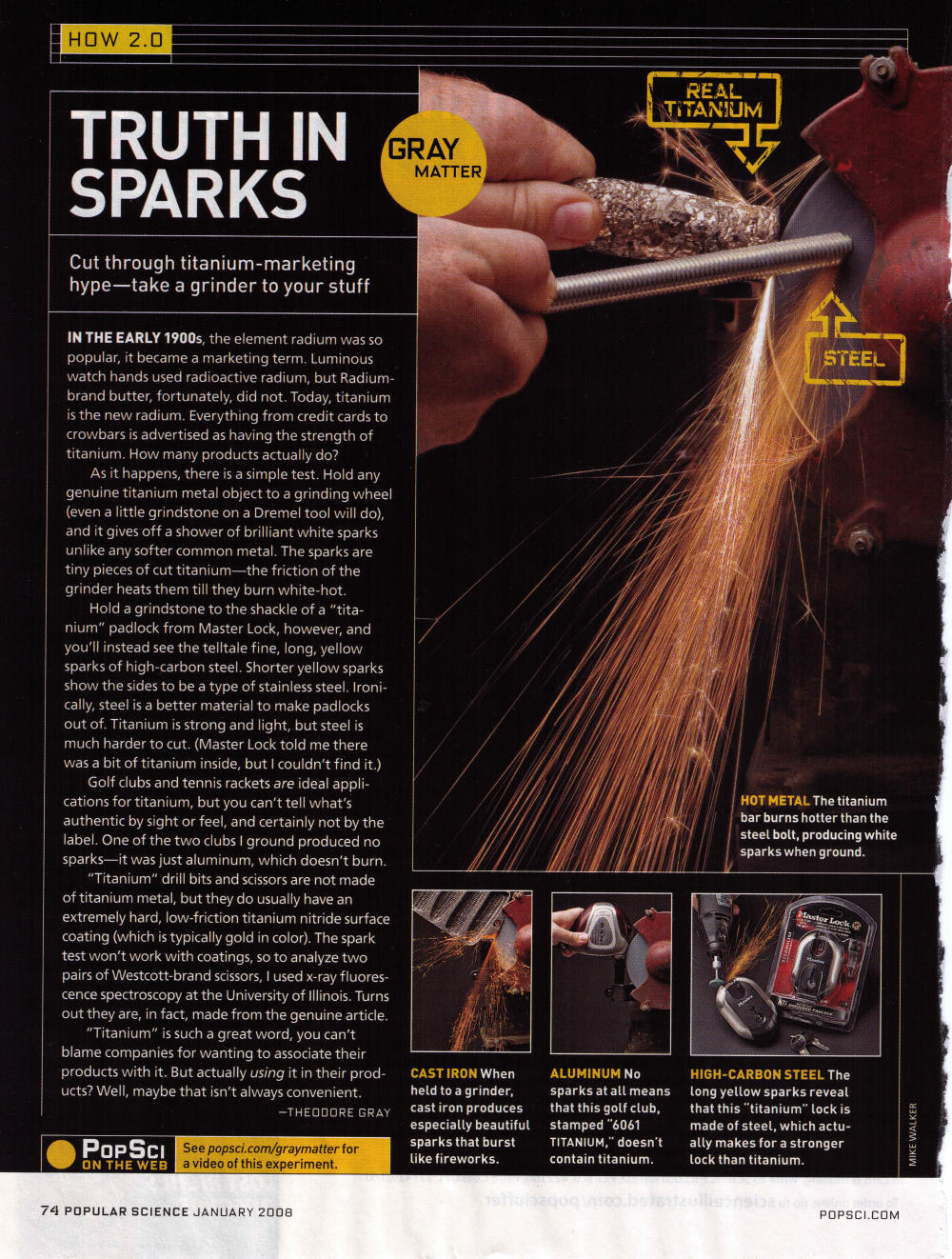| In the early 1900s, the element radium was so popular, it became a marketing term. Luminous watch hands used radioactive radium, but Radium-brand butter, fortunately, did not. Today, titanium is the new radium. Everything from credit cards to crowbars is advertised as having the strength of titanium. How many products actually do?
As it happens, there is a simple test. Hold any genuine titanium metal object to a grinding wheel (even a little grindstone on a Dremel tool will do), and it gives off a shower of brilliant white sparks unlike any softer common metal. The sparks are tiny pieces of cut titanium-the friction of the grinder heats them till they burn white-hot.
Hold a grindstone to the shackle of a "titanium" padlock from Master Lock, however, and you'll instead see the telltale fine, long, yellow sparks of high-carbon steel. Shorter yellow sparks show the sides to be a type of stainless steel. Ironically, steel is a better material to make padlocks out of. Titanium is strong and light, but steel is much harder to cut. (Master Lock told me there was a bit of titanium inside, but I couldn't find it.)
Golf clubs and tennis rackets are ideal applications for titanium, but you can't tell what's authentic by sight or feel, and certainly not by the label. One of the two clubs I ground produced no sparks—it was just aluminum, which doesn't burn.
"Titanium" drill bits and scissors are not made of titanium metal, but they do usually have an extremely hard, low-friction titanium nitride surface coating (which is typically gold in color). The spark test won't work with coatings, so to analyze two pairs of Westcott-brand scissors, I used x-ray fluorescence spectroscopy at the University of Illinois. Turns out they are, in fact, made from the genuine article.
"Titanium" is such a great word, you can't blame companies for wanting to associate their products with it. But actually using it in their products? Well, maybe that isn't always convenient. |
|

